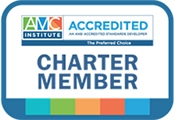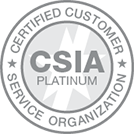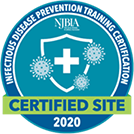I recently had an opportunity to participate in a training webinar facilitated by Mickie Rops, MAEd, CAE. The session was titled “What About Micro-Credentialing?” and was hosted within the Association Trends educational series.
For clarity, here is a simple distinction between traditional certification and micro-credentialing:Traditional Certification –validates occupation competency on a broad level, normally through some form of external review, education, assessment
Micro-Credentialing – focuses on a discrete course of study and may or may not have assessment
Traditional and Micro-Credentials Living in a Harmony
As the Senior Director of NAPO (National Association of Professional Organizers), I was drawn to this session due to the fact that NAPO currently has a traditional certification program and just recently launched a new Specialist Certificate program. I wanted to learn how Mickie described the unique characteristics and benefits of both professional development opportunities.
In full disclosure, I had attended a live session that Mickie delivered on credentialing about two-years ago, while attending an ASAE event. At that time, the information in the session raised my awareness of the opportunity that associations might have easily available within their own organizations. Associations might take educational content from conferences or webinars and repackage groups of similar topics to create a focused certificate program.
Since NAPO already had a successful CPO® traditional certification program, step one was to clearly define the difference between a certification program and certificate program to volunteer leaders and then members.
In NAPO, the new Specialist Certificates are achieved after successful completion of a chosen curriculum of NAPO classes and are promoted as an opportunity to “deepen knowledge in a particular area of study, and demonstrates their commitment to professional development.”
The NAPO CPO® - (Certified Professional Organizer) is achieved after passing an exam and completing at least 1500 hours of paid professional organizing and is promoted for individuals who “have proven industry proficiency by demonstrating they possess the body of knowledge and experience essential to professional organizing and productivity consulting.”
Why Trends Matter
The real piece of information in the content of this seminar for me was the way that the presenter incorporated trend tracking into the decision for some organizations to create a Certificate Program, in addition to a Traditional Certification program. Two relevant trends that might play into the discussion would be:
1) Trend of individuals having multiple careers in their lifetime,
2) Trend of employees changing jobs more frequently.
Traditional certification programs by their very nature often require a level of experience to accompany the knowledge that is tested within the program. Certificate programs are normally able to be earned in a much shorter timeframe.
With a world of changing careers and jobs at an all-time high, might this be an appropriate time for your association to research the option of creating a certificate program to fill a gap for newer members to your profession/industry who want to gain some type of credibility and recognition within their field?




